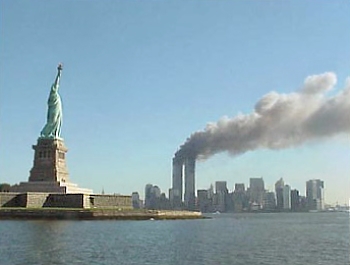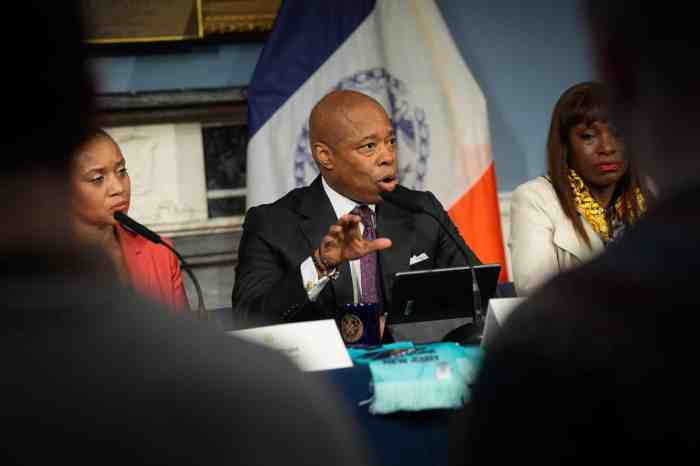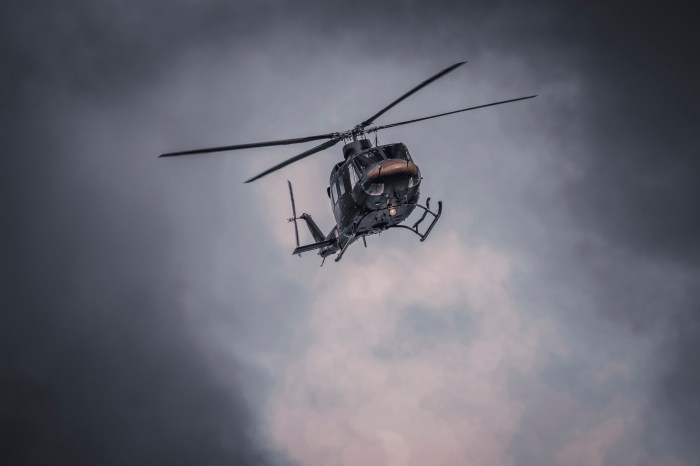We rejoiced alongside 9/11 heroes and advocates when, on June 8, the federal government proposed to subsidize the treatment and compensation of first responders and others who developed cancer from exposure to Ground Zero toxins.
Dr. John Howard’s forthcoming decision to add 50 forms of cancer to the James L. Zadroga 9/11 Health & Compensation Act is a historic one. It goes without saying that the government’s proposal to add multiple forms of cancer to the bill is the right move, since we as a nation bear the moral obligation to tend to all those who were injured as a result of the Sept. 11, 2001, terrorist attacks.
We encourage Howard to solidify his determination about including cancer in the bill as soon as possible, while taking into account the feedback generated by the proposal’s 30-day public comment period, which began on June 13.
We are pleased to hear that, once Howard’s ruling passes, the Victim Compensation Fund — the compensation portion of the Zadroga Act — will be open to cancer-stricken 9/11 survivors seeking financial reimbursement for loss of income and other monetary setbacks caused by their illnesses. This enables not only the 9/11 cancer patients themselves to apply for compensation; it also makes immediate family members of the patients eligible for subsidies through death claims.
However, we are concerned, as many are, that the devil might be in the details when it comes to carrying out this new cancer provision. We wonder about the logistics of adding cancer to the law, particularly with respect to its timing and implementation. It is unclear exactly how long it will take for the National Institute for Occupational Safety and Health to add the regulation to the Federal Register, the institute’s official listing of rules. Even more nebulous is the amount of time it will take for the World Trade Center Centers of Excellence to begin treating cancer-stricken patients once the provision is adopted into law.
We are equally anxious about the funding of treatment for not only cancer patients but for all others who are currently receiving care under the law, which is currently capped at $4.3 billion. The greater number of people who obtain medical care and compensation, the fewer benefits each of them might receive, since the amount of funding for the programs remains the same.
We therefore urge Congress to consider voting for supplemental funding to the law before it comes up for reauthorization in 2016, so as to ensure that 9/11 patients’ treatment and reimbursement isn’t compromised due to financial constraints.
Additional funding, however, won’t negate the troubling reality that the bill is set to expire in four years. This is particularly worrisome to oncologists and other physicians who anticipate a long latency period of certain forms of cancer and other 9/11-related illnesses.
Another point of consideration is the standards that doctors will use to determine whether or not a specific type of cancer is tied to a patient’s exposure at Ground Zero. Guidelines about this should be clearly delineated in the 9/11 health bill, so that the rules are consistent across the health clinics and there is as little confusion as possible among physicians.
In short, Howard’s decision marks a momentous turning point in the complex aftermath of 9/11, and we must make sure that it goes smoothly so that all of the first responders, Downtown community members and their families are properly taken care of. These affected individuals and their family members deserve nothing less than the best possible health and compensation available, without delay. We owe it to them.


















